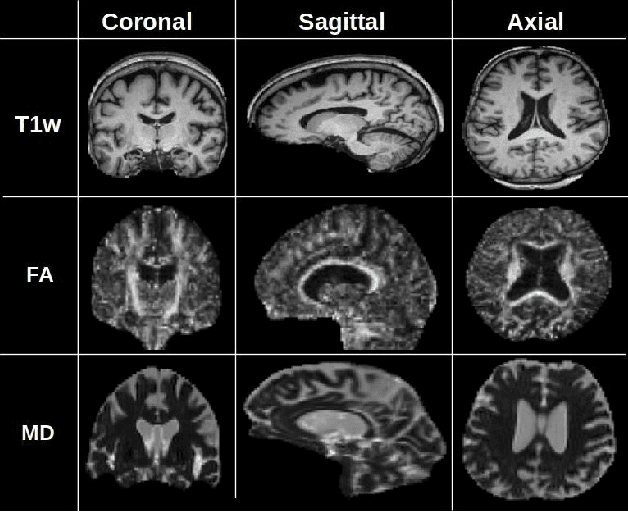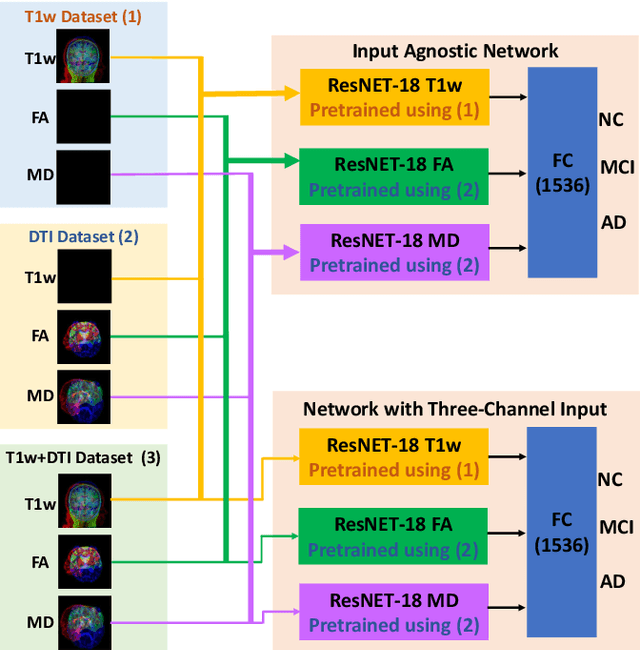Input Agnostic Deep Learning for Alzheimer's Disease Classification Using Multimodal MRI Images
Paper and Code
Jul 19, 2021



Alzheimer's disease (AD) is a progressive brain disorder that causes memory and functional impairments. The advances in machine learning and publicly available medical datasets initiated multiple studies in AD diagnosis. In this work, we utilize a multi-modal deep learning approach in classifying normal cognition, mild cognitive impairment and AD classes on the basis of structural MRI and diffusion tensor imaging (DTI) scans from the OASIS-3 dataset. In addition to a conventional multi-modal network, we also present an input agnostic architecture that allows diagnosis with either sMRI or DTI scan, which distinguishes our method from previous multi-modal machine learning-based methods. The results show that the input agnostic model achieves 0.96 accuracy when both structural MRI and DTI scans are provided as inputs.
 Add to Chrome
Add to Chrome Add to Firefox
Add to Firefox Add to Edge
Add to Edge